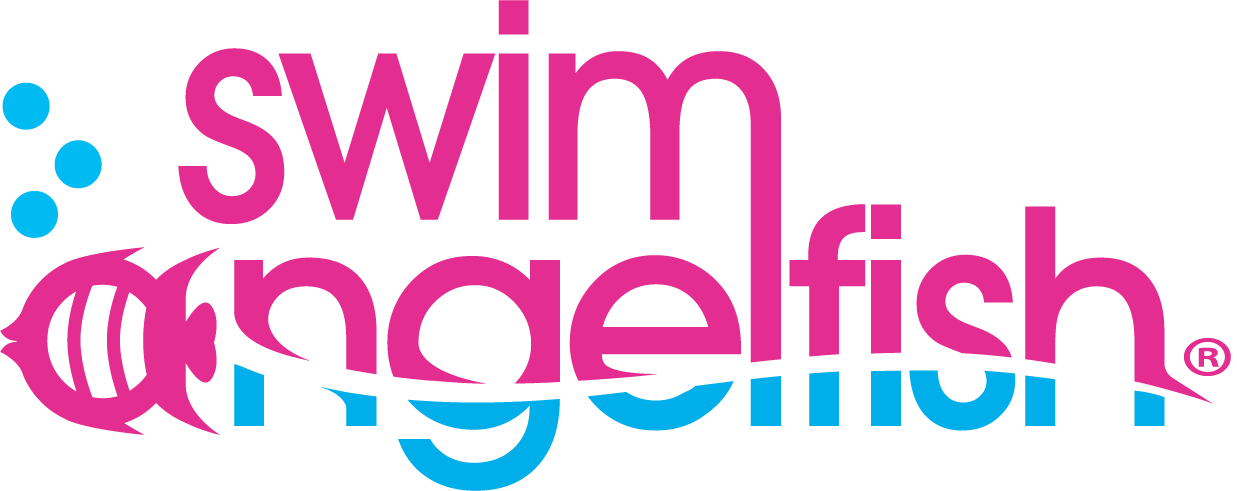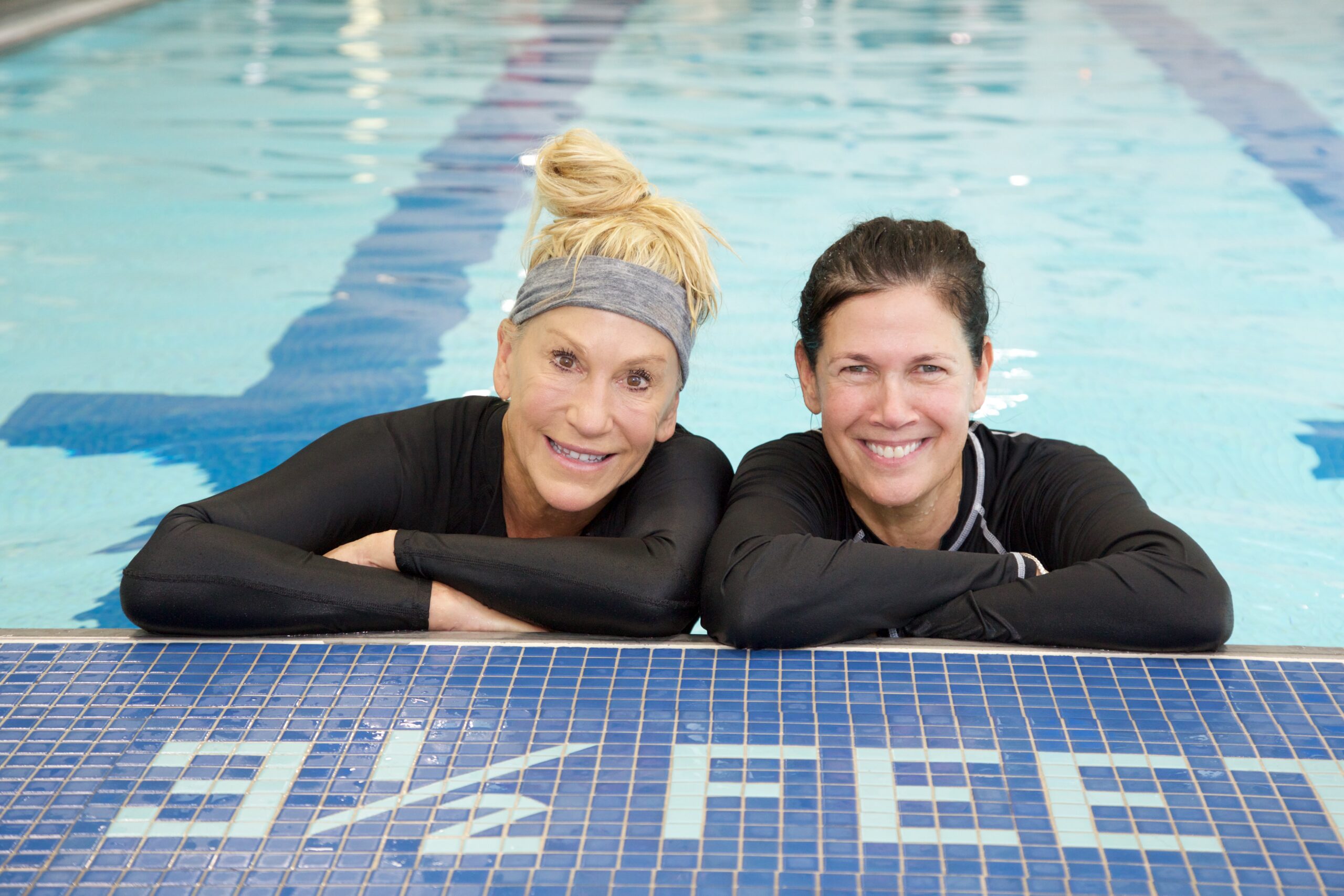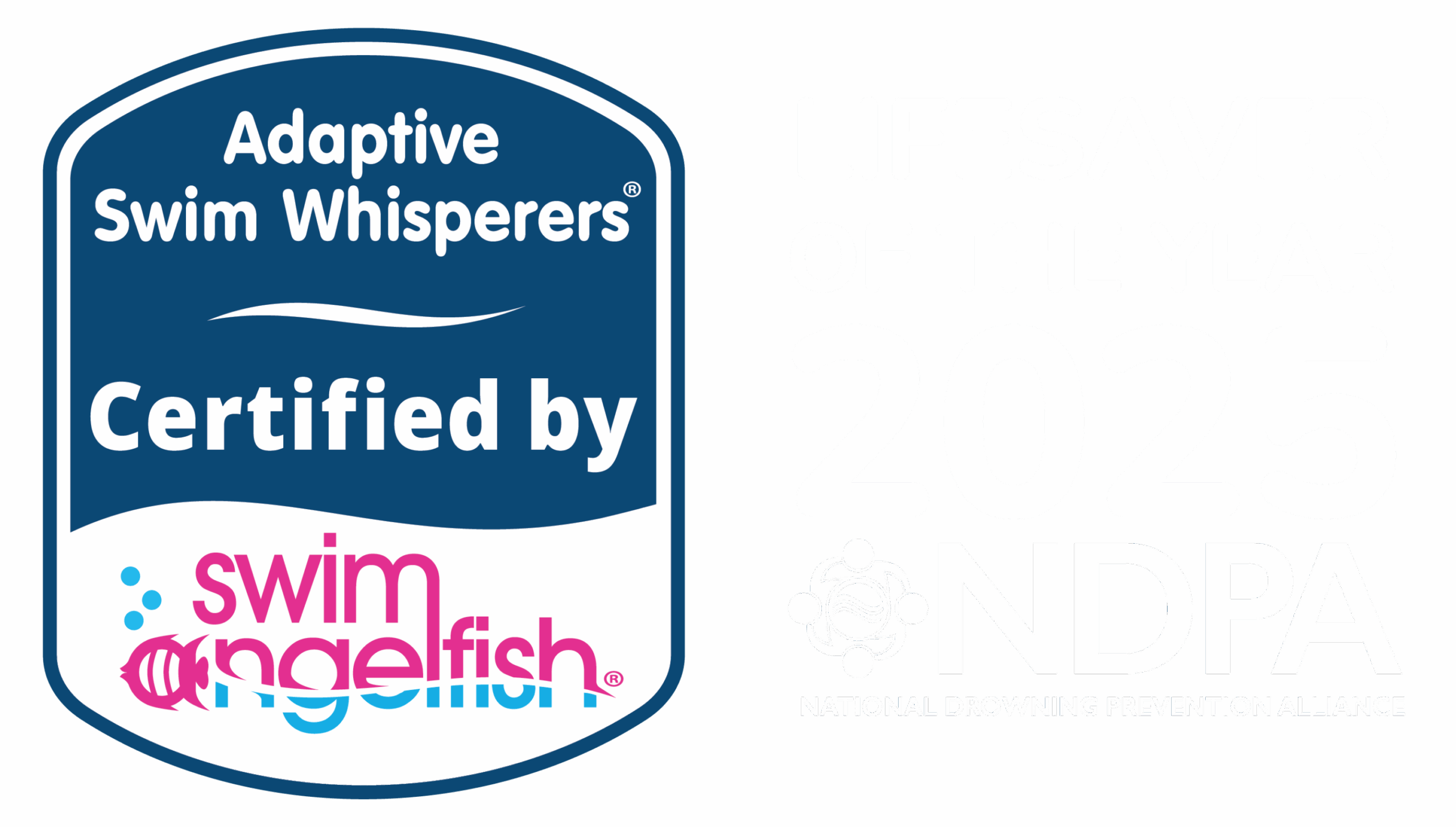First Aquatic Therapy Session: Preparation and Expectations
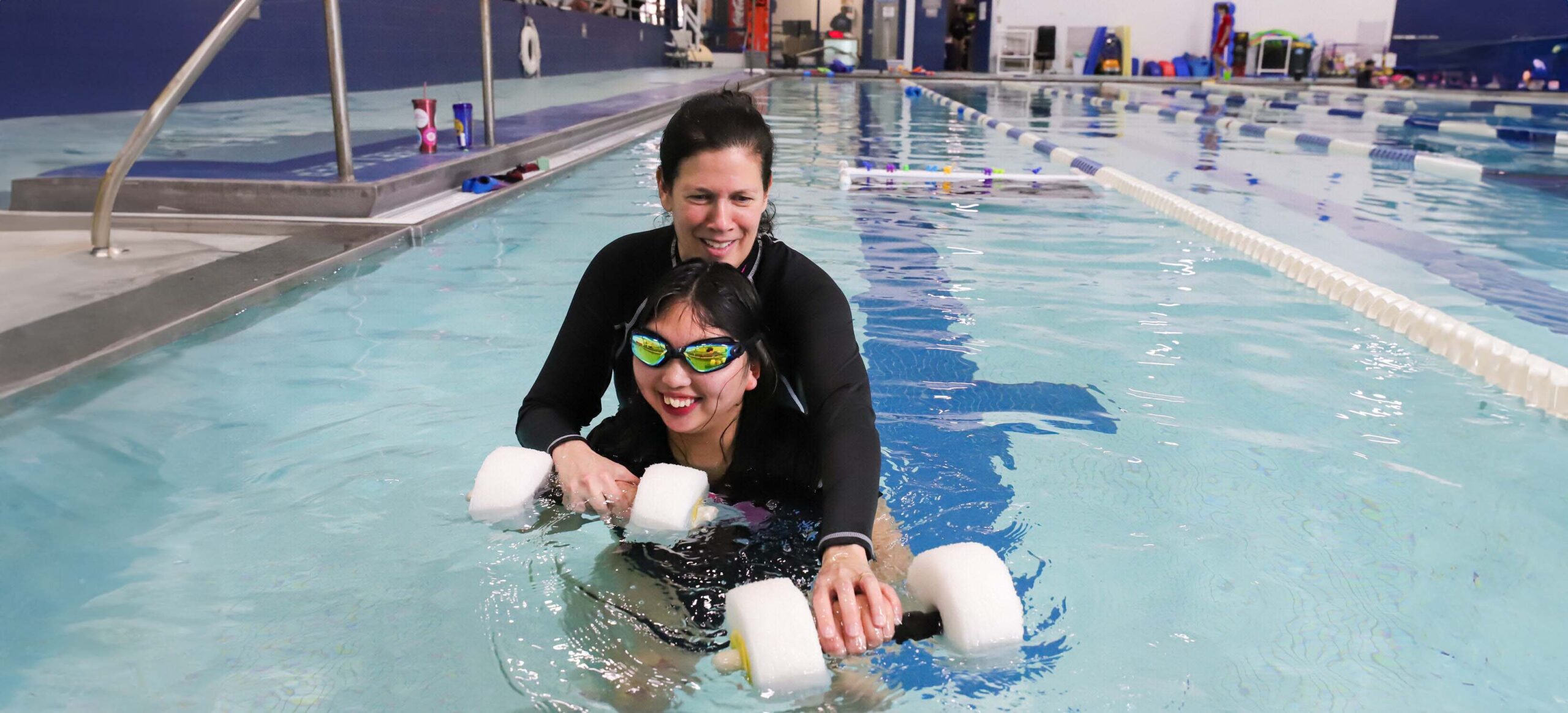
Many parents wonder what to expect for their child’s first aquatic therapy session. While it’s normal for them to feel either excited or apprehensive, our trained and experienced aquatic therapists are here to help our clients and their families, feel comfortable, improve their confidence and ensure a positive experience.
Aquatic therapy can be a great option for your child as it can improve visual motor skills, balance, coordination, strengthen core muscles, and provide sensory and reflex integration.
This guide equips you with the knowledge needed to prepare for your child’s first aquatic therapy session, maximizing the benefits and setting you both at ease.
Here’s what you’ll learn:
What To Do Before the Evaluation
Our therapists have experience working with a variety of diagnoses in the water. During an intake call with your therapist, you can discuss your concerns, questions, and any precautions before your first evaluation visit.
Preparations and Expectations for Your Aquatic Therapy Lesson
Upon completion of your Aquatic Therapy Evaluation, you will receive a written report within 2 weeks for your records. This will include a care plan and personalized goals based on your child’s needs. Continued open communication about any changes you see at home following aquatic therapy sessions with us, can help to guide future planning to reach original or new goals.
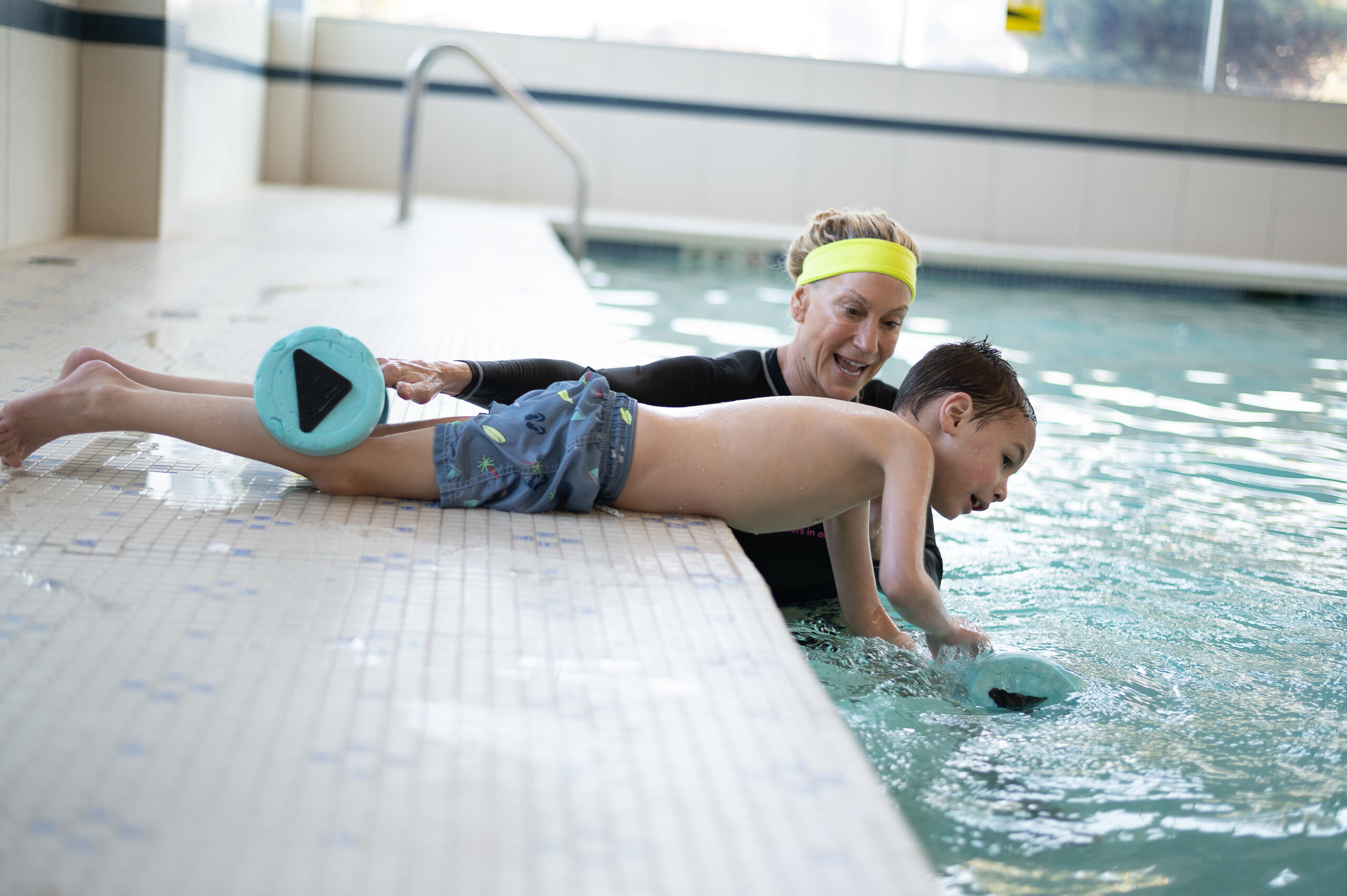
Aquatic Therapy Benefits
For a fun and effective therapy option for your child with special needs, look no further than Aquatic Therapy! Aquatic therapy utilizes the unique properties of water to improve physical, sensory, and emotional well-being. Here are 5 benefits that may surprise you:
Trust in us to help you learn Everything You Need To Know About Aquatic Therapy, and gain a deeper understanding of its benefits as well as how it can complement your child’s existing therapies.
What To Bring To Your Aquatic Therapy Session
We want to make your child’s first aquatic therapy session a success. This motivating, sensory rich environment offers an opportunity to work on multiple skills all while having fun. It is an opportunity to significantly improve one’s overall physical capabilities and well-being. By understanding what your child’s session will entail, you can empower yourself and your child to confidently embrace their aquatic therapy session. We ask that you openly discuss with us any concerns you may have! Working together is key to uncovering the potential roadblocks and will lead to a more effective treatment plan tailored to your child’s specific needs.
